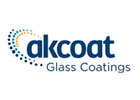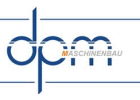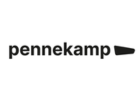More and more, the production of windows and architectural facades is concentrated on highly personalized products with special designs and state-of-the-art performance, custom designed to improve living comfort. Features that come together beautifully for use in high-performance insulating glass of ever-greater dimensions and, often, in irregular shapes. The development of warm edge technologies was the glass industry’s unique response to these challenges, now available in the form of state-of-the-art technological solutions. The Fenzi Group has long claimed the broadest and most complete range of warm edge technologies for insulating glass, a specialization upon which it has built its time-tested global leadership position. Top-ranked among these is Butylver TPS, a latest-generation thermoplastic spacer developed in the Fenzi Group labs and manufactured with the highest degree of efficiency and industrial automation, and engineered to work synergistically with commercially available automatic applicators to produce high-quality IG units.
Butylver TPS is a one-part, polyisobutylene-based spacer with desiccants incorporated. In a single product, it combines the traditional spacer profile, molecular sieve and first-barrier sealant, ensuring optimal adhesion with minimal permeability and excellent mechanical stability – all elements that translate to complete thermal insulation and durability over time. The trademark feature of Butylver TPS is that, immediately after application, it quickly adheres solidly and permanently especially to the glass. This is a key aspect not only in terms of IG unit performance, but also in terms of greater safety in the delicate glass-handling operations during production. A critical moment, as the crew know very well, that can significantly influence also the final quality of the IG units themselves.
Like all of the Fenzi Group’s warm edge spacers, Butylver TPS also ensures an excellent (very low) PSI rating, delivering a sizable reduction in the window’s thermal transmittance with a very positive impact on energy efficiency in both heating and air conditioning, not to mention the consequent benefits to the environment, thanks to reduced CO2 emissions.
The mechanical properties of Butylver TPS also offer specific advantages in terms of resistance to constant stressors, like the effects of weather, wind and temperatures. The product’s mechanical stability plays a decisive role in minimizing these effects, significantly reducing edge stress while increasing window durability.
Robotic application of the warm edge profile by means of TPS applicators allows millimetric accuracy in IG Unit edge production, absolute parallels and extraordinary linearity, all extremely crucial factors in the production of triple glazing. It is exactly this kind of precision that, added to the intrinsic quality of the material itself, ensures perfect corners and almost no permeability to gas and water vapor, while ensuring superior sealing of the insulating glass, limiting condensation at the edge and lengthening the lifetime of the entire system.
Such a high degree of automation also allows for optimization of the entire production process, for maximum efficiency and exact reproducibility of the final product. In addition, there is a considerable reduction in waste material, optimization of warehouse management and of the various IG components, as well as uncommon flexibility in terms of the diversity of shapes, wealth of air-fill spaces and size of the IG units.
The flexible thermoplastic spacers satisfy all of these conditions, becoming new proof of the Fenzi Group’s ability to be at the forefront of ongoing progress in glass technology.
The flexible thermoplastic spacers satisfy all of these conditions, becoming new proof of the Fenzi Group’s ability to be at the forefront of ongoing progress in glass technology.



























